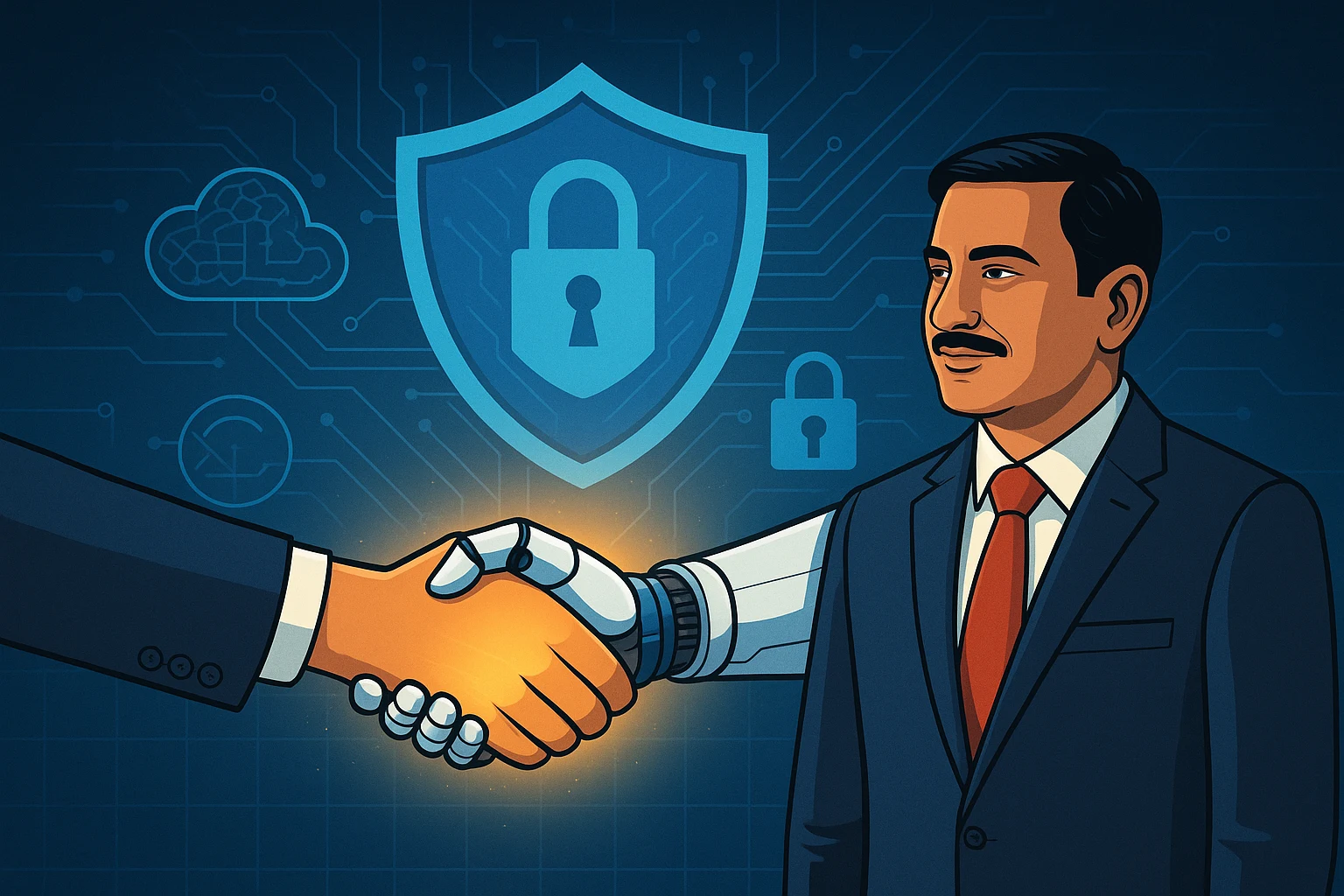As generative AI reshapes the contours of work, few industries feel its impact as profoundly as cybersecurity — where talent, trust, and technology converge to define resilience. For Lalith Sharma, President & Chief Human Resources Officer at Inspira Enterprise, this shift isn’t merely about technological adoption; it’s about reimagining human potential in an AI-augmented world.
Sharma believes that the next chapter of cybersecurity will be written not just in code, but in capability. Under his leadership, organizations are developing new hybrid roles, such as AI Security Analysts and AI Risk Officers, by leveraging AI-driven upskilling and embedding ethical governance throughout the employee lifecycle. His people-first philosophy ensures that AI serves as a tool of empowerment**, enhancing empathy, inclusion, and cultural trust across the workplace.
In this exclusive conversation with CISO Forum, Sharma shares how forward-looking HR strategies and AI-infused learning ecosystems are preparing today’s workforce to thrive securely, ethically, and intelligently in the age of automation.

President & Chief Human Resources Officer
Inspira Enterprise
CISO Forum: Generative AI is often seen as a double-edged sword in cybersecurity. From your vantage point, how is it shaping entirely new roles, such as AI Security Analysts or AI Risk Officers, within the industry?
Lalith Sharma: At Inspira, we see AI as not just a technological evolution but a catalyst for organizational transformation. As AI becomes more deeply embedded in the cybersecurity stack, it naturally gives rise to new roles, such as AI Security Analysts and AI Risk Officers, who focus on securing AI models, managing AI-related threats, and ensuring the ethical and compliant use of AI. We are proactively building these competencies internally, not only through recruitment, but also by upskilling existing talent to step into hybrid roles that bridge AI and analytics, as well as cybersecurity.
CISO Forum: Cybersecurity is already a high-pressure, skills-shortage market. How is Inspira using AI-driven upskilling and ethical AI training to future-proof its workforce against these new demands?
Lalith Sharma: The cybersecurity skills gap in certain areas is very real, and at Inspira, we recognize that solving it requires more than just hiring — it demands continuous learning and talent retention. We have integrated our learning through LinkedIn and Nvidia AI, which personalizes upskilling paths for employees based on their role, experience, and future readiness. We are also looking for an agile LMS that can provide employees with options to set career progression frameworks based on roles and skills, aligning with industry expectations. We believe AI-driven HR platforms continuously update employee capabilities, mapping them against the emerging business trends.
CISO Forum: AI is increasingly transforming HR itself — from candidate sourcing to performance management. What are the most impactful ways you see generative AI being applied in HR practices at a cybersecurity company?
Lalith Sharma: We have started leveraging it across the candidate and employee lifecycle through planning to implement Oracle Redwood, which is packed with an “N” number of AI features for every step of the HR processes and dashboarding with predictive analytics. We use it to enhance decision-making, not replace it, ensuring that empathy and culture remain at the heart of every people process. Even HR roles are evolving, like HR Tech, People Analytics Specialist, among others.
CISO Forum: Insider threats are as much about human behavior as they are about technology. How do you see HR culture, trust, and ethics intersecting with AI tools to strengthen cyber resilience?
Lalith Sharma: Culture is the first line of defense. At Inspira, we believe that technology can only be truly effective when paired with a culture of trust, transparency, and shared accountability. We focus heavily on building psychological safety, fostering open dialogue about security responsibilities, and training leaders to lead in this fast-paced digital age.
CISO Forum: Cybersecurity has traditionally been a male-dominated industry. Do you believe generative AI can help break bias in hiring and evaluation, or does it risk reinforcing the same barriers?
Lalith Sharma: At Inspira, we are very much aware that AI systems are only as fair as the data and intent behind them. AI helps us go beyond surface-level metrics and focus on skills, potential, and values alignment. It’s all about data sets and then training those models. It is a tool we use to challenge — not reinforce — traditional patterns of hiring and advancement. We are evaluating AI-based screening and assessments platforms, AI-based JD creation, and have matches between candidate skills and JD, intelligent Chatbots, and more. When thoughtfully implemented, it can unlock a more inclusive cybersecurity workforce.
CISO Forum: Finally, as a leader at a global cybersecurity firm, how do you balance the pressure to rapidly adopt generative AI with the need to ensure workforce readiness, governance, and long-term resilience?
Lalith Sharma: At Inspira, we prioritize innovation. We have established a governance framework that evaluates every use case through the lens of risk, readiness, and impact. This includes structured AI readiness assessments for teams, investments in change management, and a commitment to continuous reskilling with adoption. We are building resilience by ensuring our people, processes, and policies are aligned, so that every step forward with AI is secure and future-ready.



